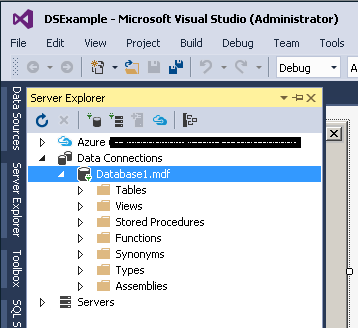

The fact that changes in both views are immediately synched and checked for syntax makes for a pleasant and efficient user experience. It's great, for example, to have a designer view and a T-SQL view (shown below) when you're designing or refactoring SQL tables. Your enthusiasm is understandable given the overwhelming positive reaction to SSDT among SQL Server developers. Any help you can give would be much appreciated.

But when I look at those tables in SQL Server Management Studio after I publish, the data just isn't there. I have several post deployment scripts that populate different lookup tables in my database. But unfortunately, for some reason, I can't seem to get my post deployment scripts to work when I publish the project to a live database. The tool is just so much easier to use than the old VS 2010 database projects. Since then I've become SSDT's biggest fan. Maybe I jumped the gun a bit, but I've started using SQL Server Data Tools (SSDT) in Visual Studio 2010. By: Mike Bishop | Updated: | Comments (9) | Related: > Tools


 0 kommentar(er)
0 kommentar(er)
